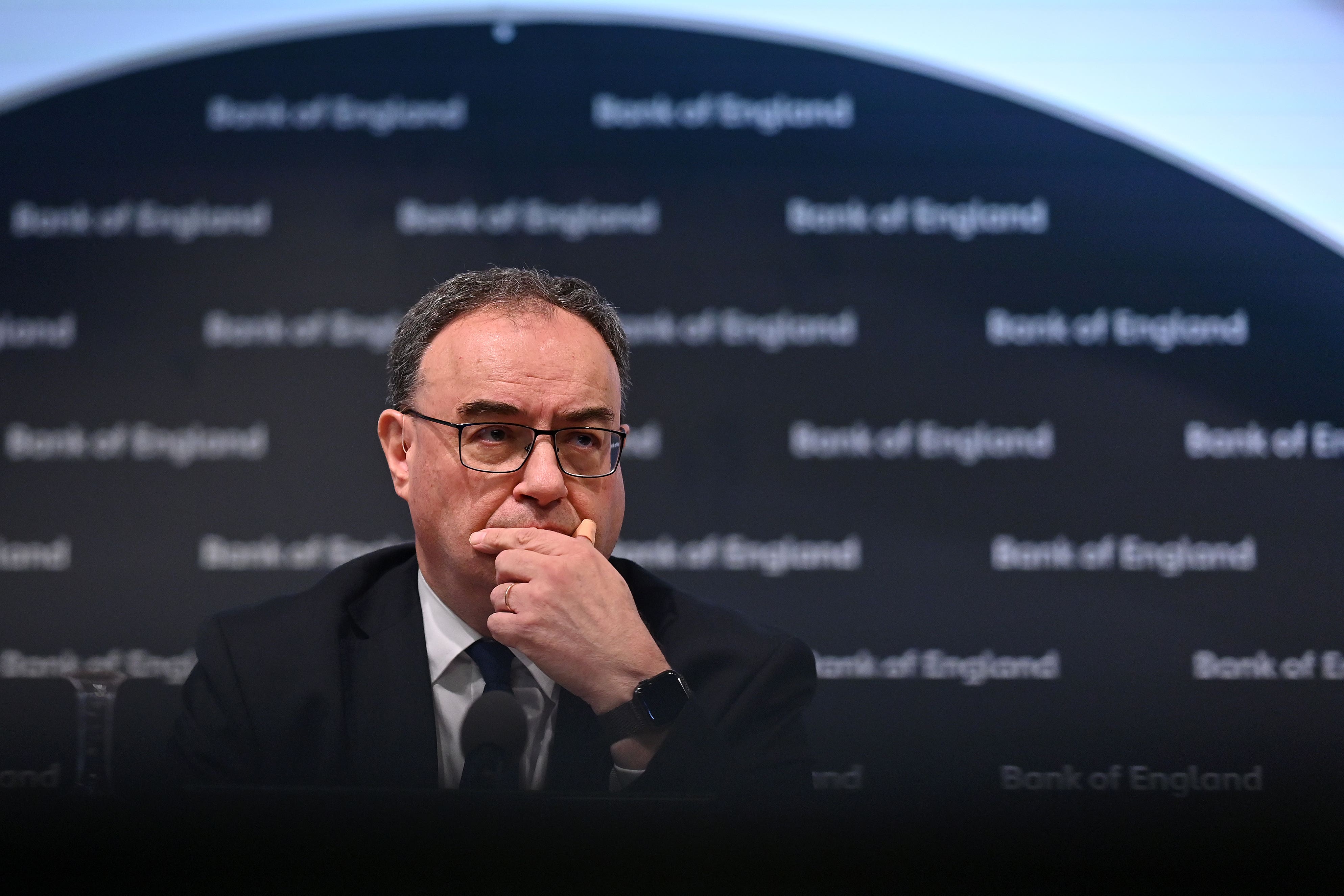Bank says interest rates could be cut ‘gradually’ after holding at 5%
The Bank of England’s Monetary Policy Committee sounded a cautious tone in its decision to keep the UK base rate the same.

The Bank of England has said interest rates could be cut “gradually over time” if inflation stays low, after leaving borrowing costs unchanged at 5%.
The Bank’s Monetary Policy Committee (MPC) sounded a cautious tone in its decision to keep the UK base rate the same.
The MPC last month cut rates from 5.25%, instigating the first reduction since 2020 and delivering good news to borrowers facing higher costs.
But the committee said on Thursday that it needed to be careful not to ease monetary policy too quickly until it could be certain that inflationary pressures had been “squeezed out of the system” entirely.
Andrew Bailey, governor of the Bank of England, said: “Inflationary pressures have continued to ease since we cut interest rates in August.
“The economy has been evolving broadly as we expected.
“If that continues, we should be able to reduce rates gradually over time.
It’s vital that inflation stays low, so we need to be careful not to cut too fast or by too much
“But it’s vital that inflation stays low, so we need to be careful not to cut too fast or by too much.”
Economic data has changed relatively little in the time since the committee last met.
Consumer Prices Index (CPI) inflation stayed at 2.2% in August, a fraction above the 2% target level, according to official data.
And the UK economy recorded no growth in July for the second month in a row, the latest figures showed.
So long as wage growth and services inflation remain sticky, then the committee as a whole seems happy to tread carefully
Matt Swannell, chief economic adviser for the EY Item Club, said that the “majority of the MPC need a little more confidence that the economy is moving towards a scenario of declining inflation persistence before dialling back” interest rates further.
He said Thursday’s decision marked a “skip, rather than a pause” in the rate-cutting cycle, with EY expecting another 0.25 percentage point reduction in November.
James Smith, developed markets economist for ING, said the Bank “made it abundantly clear that it is not in any hurry to lower rates”, and agreed that the next cut was “highly likely” to come in November.
“So long as wage growth and services inflation remain sticky, then the committee as a whole seems happy to tread carefully,” he said.
For the eight members of the MPC who voted to keep rates the same, a slowdown of price and wage rises, and the UK economy growing in line with forecasts, was evidence that a gradual approach to easing rates was necessary.
They also noted some uncertainty in the global outlook, such as weaker demand for oil leading prices to fall, which warranted the need for caution.
One member, Swati Dhingra, voted to reduce rates to 4.75% because she felt that inflation had been on a downward path for some time, and that it would take time for lower rates to filter through to the economy.
Suren Thiru, economics director at the Institute of Chartered Accountants in England and Wales (ICAEW), said the Bank was being “painfully cautious” in its approach to monetary policy.
“Keeping interest rates unchanged will be a notable setback to households contending with burdensome mortgage bills and businesses grappling with a variety of other cost pressures,” he said.
George Buckley, chief European economist at Nomura, said he thought mortgage rates were likely to fall further with the Bank expected to resume its easing cycle in the coming months.
He said mortgage rates on some products had already fallen by almost 0.5 percentage points over July and August.
Meanwhile, America’s central bank, the Federal Reserve, voted for a bigger 0.5 percentage point reduction of its interest rate on Wednesday, its first cut in more than four years.
Bookmark popover
Removed from bookmarks